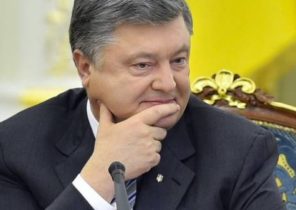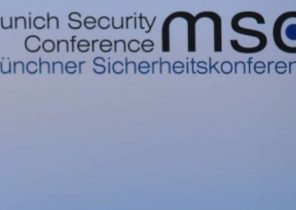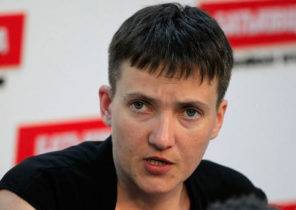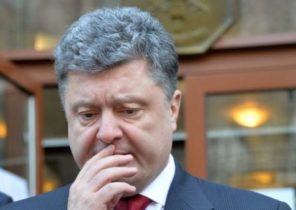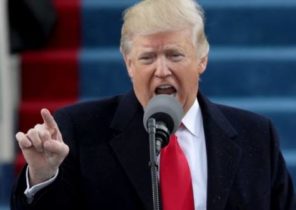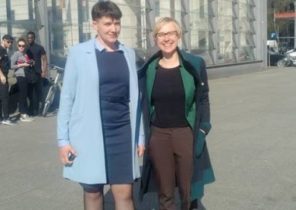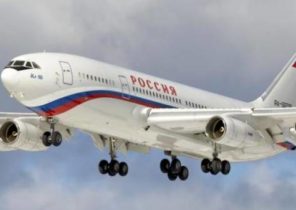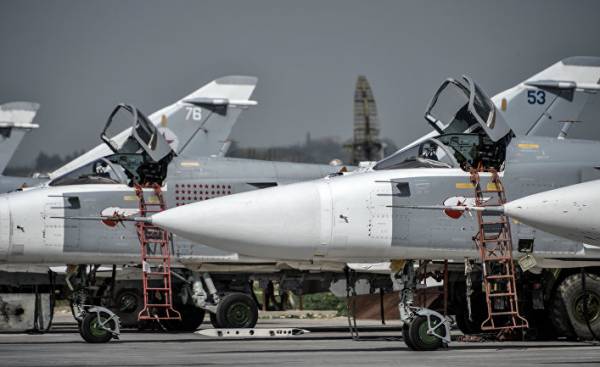
It is widely believed that the Russian domestic and foreign policy exist independently of each other.
But this is not the way that would allow to understand Russia and her Islamic world.
Not the last in this respect, the reason is this: the Kremlin’s attitude to its Muslim citizens is inextricably linked to how it relates to neighboring Muslim States from among republics of the former Soviet Union.
And so when Putin confirms his good intentions towards living in these countries are Muslims, the question arises as to what action he is taking in the case of manifestations of discontent in Muslim-populated territories of the Russian Federation.
The biggest source of concern is applause everything in its path offensive, which he ordered in 1999, while still Prime Minister under Yeltsin.
Moreover, the former Soviet republics in Central Asia, became independent States, have their own reasons not to trust Russian claims of good intentions.
The Russians and their rulers demonstrate a sort of post-Imperial syndrome, which also defeated Britain and France after the Second world war, when they lost refused their colonies in different parts of the world.
Russia is increasingly trying to make the other great powers did not receive influence in the former Soviet republics in the South of the already defunct Soviet Union — and there is no doubt that the maintenance of Putin’s ties with them intertwined with Russian military operations in the middle East.
Russian involvement in the Affairs of the Islamic world is determined by three factors: the Muslim factor in the Russian Federation, the Muslim factor in the interaction of Russia with the former Soviet Central Asia and the Muslim factor in the Russian military and political interventions in the middle East. None of these factors can be properly understood if considered in isolation from the other two.
In the longer term, and sooner rather than later, it is a triangular cooperation will be the Central axis of the events, as the Russian President, the government and the security services will face many challenges.
Foreigners-Muslims do not matter for the leadership in Moscow and they can only serve as a means to achieve some goal, whereas Putin’s attempt to present itself as the best friend of the Islamic world is nothing more than a pose — and also hypocritical.
His no preference regarding the type of Islam that it finds from its Muslim allies and clients. Iranian Ali Khamenei is a Shiite, Assad in Syria — Alawi, Erdogan in Turkey is a Sunni Muslim.
Russian foreign policy aims mainly at reducing American influence in those parts of Europe and the Middle East, where the Soviet Union once had influence. The challenge was to restore the former Russian position and influence.
Putin does not bother the fact that he relies on harsh measures inside Russia and abroad. Putin intends to ensure that world recognized Russia as a great power, whose interests require a respectful attitude, and it suppresses political dissent in the Russian Federation, wherever it occurs.
Putin’s policy is replete with risks. Russian politicians and military openly intervene in the Islamic world under the pretext of a universal principle of protecting the sovereignty of individual States. However, this does not correspond to their own behaviour in Crimea and in Eastern Ukraine. Assad, Khamenei and Erdogan realize that Putin considers them his pawns in a geopolitical chess game. They hope to use it for their own national interests. Putin believes that while the Russian ground forces are at a minimum level, there is no risk of such a complex and confusing situation that prevailed in 1979 after the Soviet military invasion of Afghanistan, and led by America after the invasion of Afghanistan and Iraq at the turn of the Millennium.
However, the policy in the middle East is more unpredictable than a game of chess, because it is carried out without fixed rules. Military interventions, even those which occur a successful attack can cause catastrophic consequences.
A disaster for the fishing season hasn’t happened yet, but he is not endowed with great foresight, than Leonid Brezhnev for Afghanistan, or George Bush against Iraq.
Putin likes to make the impression that he can do whatever he wants. However, the reality is that Russia is not able for a long time to dictate terms in relation to its intervention in Syria.
The Russian economy has serious weaknesses related to its reliance on market prices of petrochemical products. The international position of this country is based on a narrow Foundation of the proceeds from the sale of natural gas and oil, and therefore, the attempt by Moscow to gain influence outside Russian borders may still prove to be chimerical.
First and foremost America will have the opportunity to complicate the Russian presence in Syria just as the Americans created at the time of the problem for the Soviet Union during the war in Afghanistan. Moreover, the Russian allies are likely to attempt to use the opportunities available to them in order to impose his choice of his patron.
It is highly likely that Moscow will be drawn into such conflicts in the middle East that she will not be able to predict. However, Putin’s popularity remains at a high level due to the fact that he had no special respect refers to American presidents. He restored the trust of the people, the morale is severely decreased in the last decade of the twentieth century, and also increased living standards and the quotations of the ruble. 1990-e years is the period that Russian people are trying to forget.
Putin has put his reputation on the ability to continue to make Russia respected and feared abroad. As a result, the need for aggressive behaviour; and the more Putin is behaving like a mad dog on the global stage, the more the Russian electorate admires him.
He is under increasing temptation relative to the risky action, but it is impossible not to take into account that a single risky action is more than enough in the middle East, Ukraine or the Baltic States.
Playing the nationalist card in Russian politics, he can’t get her out of the deck and put aside. Any possible successor would be difficult to remain in the chair if he will not hold active nationalist policy. All this creates danger to global peace, which, apparently, will be more serious and more ambitious.
In addition, it would be a mistake to think that Russian Muslims will always agree with Russian foreign policy in the middle East and to reject the criticism of Putin by the Islamists.
The attention of the Russian TV channels to the Syrian civil war, especially the Russian military operations, inevitably leads to increased attention to the destruction of cities. Although the broadcast media in 2015 insist on the fact that Russian warplanes are attacking only the Islamist insurgent groups, does not require much imagination to imagine the thousands of dead in a brutal way Sunni Muslims.
The Russian agenda in the middle East may result in negative consequences for the Russian leadership.
The situation may be even more explosive in the former Soviet Central Asia, where repressive kleptocratic regimes occupy a dominant position after the collapse of communism. Sporadic manifestations of discontent shows that these authoritarian systems are weaker than they seem.
Local Islamists see an opportunity to spread their ideas among the Muslims who are dissatisfied with totalitarianism. The potential explosion of social protest exists in several States at the southern borders of Russia.
One possible result could be the emergence of an Islamist regime anywhere in the former Soviet Union, and this behavior may become a problem for Russia, which since 1991 supports the anti-Islamist forces throughout the region.
In such a situation Russia would be particularly vulnerable because of its significant role in helping antisemitsim forces in Syria, Iran and Lebanon. Sunni and jihadist government in Central Asia is unlikely to seek an agreement with Russia’s ruling elite.
Chechnya has a long history. The Russian conquest happened in just half a century ago, and many Chechens, like other neighboring Nations, simply refuse to consider your the North Caucasus part of Russia.
The latest outbursts of the Chechen resistance were suppressed in 1999-2000, however, the achieved peace, possibly, will not last long. In addition, you cannot take for granted that the Volga Tatars and Crimean Tatars will always be quiet.
Other countries are already faced with the unexpected rise of Islamic extremism among its young Muslims in the Russian Federation increasingly heated cauldron of discontent.
In addition, within the country and outside of Russia for many centuries, since the era of the Golden Horde, has direct experience with the Islamic world. She was able to cope with their Muslims without any problems and this process began in the 15th century, when Muscovy rid of the Mongol yoke; and as the Russian border has expanded, more and more Muslim communities were ruled by the Russian tsars.
Although the uprising happened quite often, the Imperial army was far superior in its capabilities of rebel forces. Russia’s claims regarding the control over the actions of the Ottoman Empire became the reason of a military attack by the British and the French in the Crimea. At the same time the Russian authorities the Russian authorities tried to prevent the spread via their heads of influence of the Ottomans on the Russian Muslims.
In the 20th century, internal and external factors have become even more acute since the Communist revolutionaries attempted to integrate Muslim communities of the former Russian Empire. At the same time they were destroying the Islamic faith and created the Communist party in Islamic countries controlled by European empires, including the middle East.
When the Soviet Union after world war II became a superpower, the Kremlin has tried to lure all Muslim States into its sphere of influence, while at the same time he continued to interfere with the administration of the Islamic faith within their own borders. The Islamic faith began to revive in the Soviet Union during the perestroika years, and the active resistance of the Communist regime intensified.
In 1989 the Soviet Army withdrew from Afghanistan under pressure from the Mujahideen. After the collapse of communism in 1991, the anti-Russian Islamic activists — unlike the jihadists in the 19th century and early 20th century — used modern technological capabilities.
The victory of the Russian armed forces in the North Caucasus are unable to completely clear the Russian territory from terrorists. Although the ruling elite has managed to stabilize the situation in the Russian Federation, there is no reason to believe that this stability will exist for a long time.
This is one of the reasons that Putin relies heavily on authoritarian methods to suppress dissent. And, basically, that is why in times of economic recession, when the government reduces your aimed at maintaining the welfare budget, he is trying to enlist the support of the nationalist circles in the country.
This creates a risky situation in Russia in the near abroad and the middle East.
The risks associated with the maneuvers of Putin, are on the increase, and we can only hope that he will behave cautiously in those or other relations with the administration of the trump. If to judge objectively, it will be in the national interests of Russia.
But even if Putin and will be able to keep Assad in power in Damascus, such an outcome will not bring permanent peace to the middle East and Russia could suddenly be dragged into the quagmire of war, as happened with the Soviet Union in Afghanistan.
If Putin is not careful, then other forces will be forced to keep it. But even in this case, negotiations are preferable to war, and stability better than uncertainty.
Putin earned points, achieving the recognition of Russia as a great power. But this power, the Achilles heel in the field of the economy, as well as with the Chinese neighbor who is far ahead of Russia in the industrial and technological dynamism.
The chances for peace, ultimately, will depend on the recognition by the Russian rulers that their prospects for long-term success depends on their willingness to treat the West as a partner and not as an enemy.
Reagan and Gorbachev in the late 1980-ies have demonstrated what can be achieved in terms of mutual trust. But if at the end of 1980-ies Russia was sorely needed break in the arms race, Russia today is looking for a way to shake the world order.
Global politics has entered a period of instability and Islamic factors have a devastating impact on the search for peace.
This article is an excerpt from the new book “Russia and Islamic world” (Russia and Its Islamic World).
